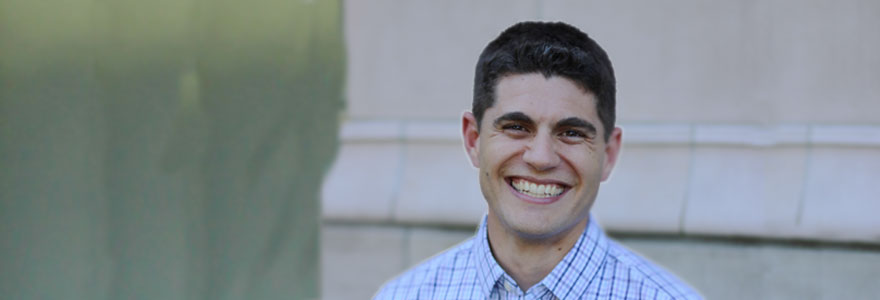News and Updates
Contact
Faculty of Social Science
Social Science Centre
Room 9438
Western University
T. 519-661-2053
F. 519-661-3868
E. social-science@uwo.ca
Patrick Denice joining Department of Sociology
April 10, 2018
Story by Rob Rombouts
Patrick Denice is joining the Department of Sociology as Assistant Professor in July 2018.
Denice completed his PhD in Sociology at the University of Washington, and completed a Post-Doctoral position at Washington University in St. Louis.
Denice’s research focuses on how institutions contribute to inequality across the life-course, particularly investigating how education options impact later opportunities for people.
Denice has researched the limitations of public school choice policies in addressing issues of inequality and segregation in the United States. While an increasing number of cities in the US are allowing some form of school choice, wherein families can opt of their neighbourhood school and into another, Denice said that the “supply of schools substantially constrains the ability to choose a school. Due to a relative lack of top rated or highly performing schools located nearby, the strain is mostly borne by those already at a disadvantage.”
Denice has also looked at the post-secondary education experiences of adults over 30 and those who take other less traditional paths through college, with specific attention paid to the labour market outcomes of people who attend for-profit colleges.
Denice found that students who attended a for-profit college, particularly those who earned a two-year degree, appear to earn significantly less than those who attended public or private, non-profit colleges. The research suggests that the for-profit college sector places those already at a disadvantage socioeconomically and educationally at a further disadvantage in the labour market.
This could be due to lower quality in skills and knowledge training being provided by for-profit colleges, as compared to other colleges, or it could be a signalling affect, whereby potential employers view for-profit colleges negatively as compared to other college options.
“Due to their open access nature, people who may not have originally thought of attending college see for-profit schools as one pathway to a college education,” said Denice. “But despite this expansion of access to higher education provided by for-profit colleges, their outcomes leave something to be desired.”
While his research has been focused on education options in the US, Denice is excited about exploring similar questions in the Canadian context.
“I’m really drawn to the (Western) sociology department, for its strengths in social inequality and bringing interesting data and innovative methods to bear on important questions about the role institutions play in individuals’ lives,” said Denice. “I see exciting opportunities for collaboration. Western seems like a really collaborative place, where people are invested in one another’s success.”

